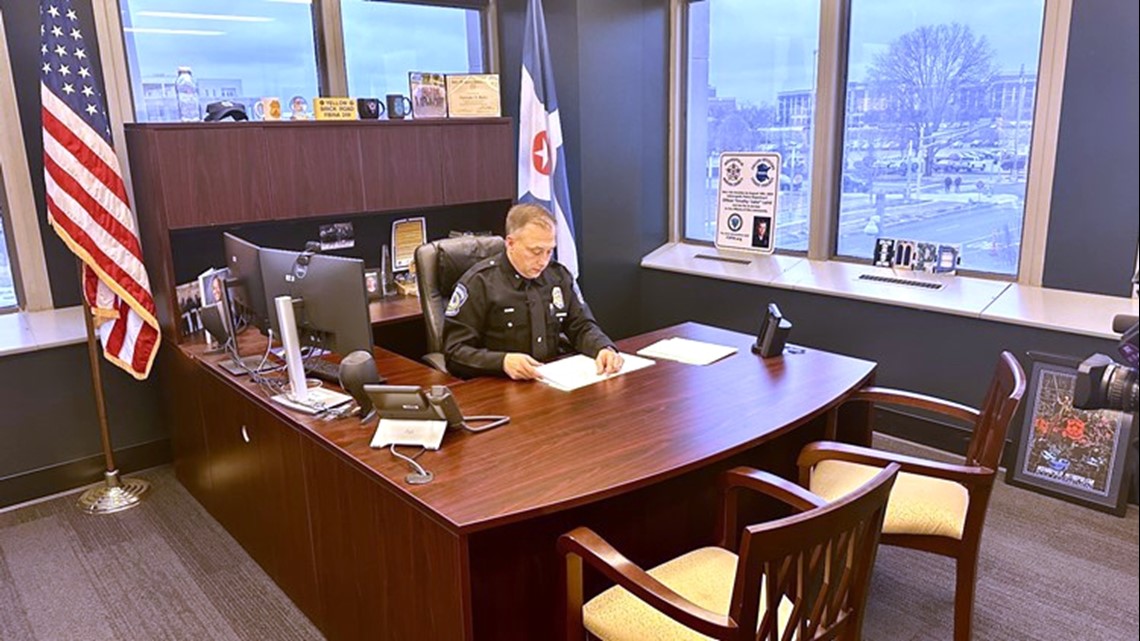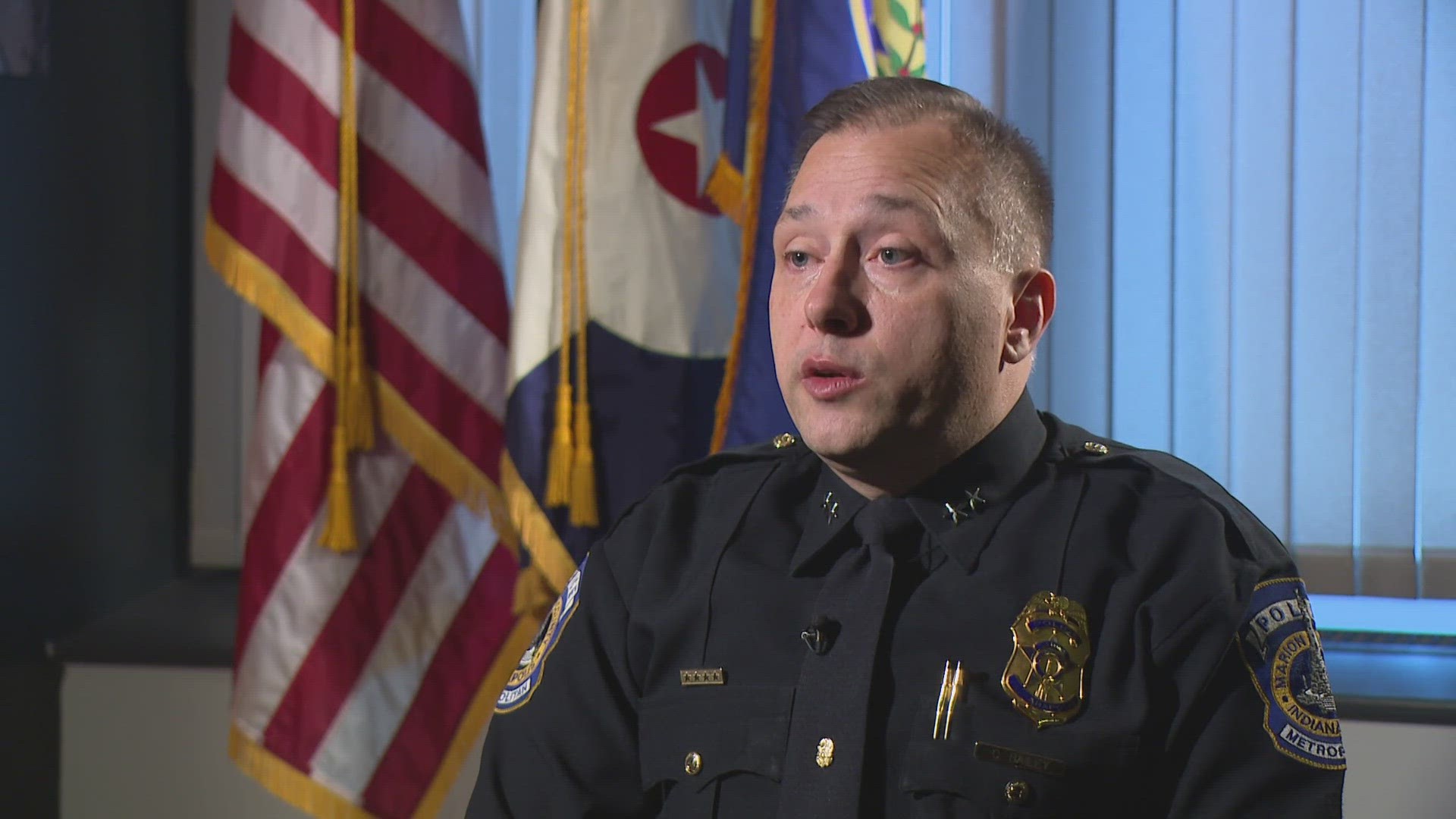INDIANAPOLIS — In his first full today on the job, IMPD Chief Christopher Bailey hasn't settled into the chief's office quite yet. But he's already prioritizing his to-do list.
"I don't know that I slept last night," said Bailey, who was sworn in as chief the day before.
A 25-year veteran of the department, he'd been serving as acting chief for about a month.
During a news conference this week, Bailey said the department would soon be partnering with an outside organization to analyze an increase in officer-involved shootings. Last year, 18 people were shot by police — the most in nearly a decade. Bailey also said he would be focusing on ways to make the department more efficient and how to retain and recruit officers.
When Bailey sat down with 13News, he said keeping officers on the force and attracting new ones is his biggest challenge.
"It's important for us to find ways to keep (officers), and then, how do we get more people in the front door so (existing) officers can move around within the agency?" he said.
The FOP has voiced frustration about a system it says has become too lenient on criminals. Asked whether reforms should be made at a local or state level to avoid officer burnout, Bailey said the criminal justice system "as a whole can always get better."
"But what I try to tell our officers is we have to focus on what we can control, and what we can control is enforcing the law fairly, constitutionally and doing our job each and every day," Bailey said.


He said another top challenge is building bridges in the community.
"We know that when the community trusts us, they report crimes, they cooperate with our detectives and we can solve more crimes and hold people accountable. That makes our community safer. It makes our cops safer," he said.
Bailey said he believes most people are complimentary and thankful for what officers do, but added they have work to do.
"Especially in historically underserved communities, there is a history of negative interactions with law enforcement, negative interactions with government, and those things are generational. They're passed on from generation to generation, and we have to recognize that," Bailey said. "In some communities, especially the African American community, it's going to be harder for us because of the historical inequities that have existed in our country, our state and our city. You can't get around those. That is the truth, and so it's harder in those communities to make people believe in you, considering the history we've had. So it's just something that we have to keep doing and working on. It's not a 'one and done, drop the flag, mission-accomplished' thing. It's an every interaction everyday type of thing we have to do."
Bailey said he also looks forward to examining ways to make the department more efficient and effective.
"We have to look at every single section within the agency. What are they doing? Is it a priority? The other thing is ... how do we deploy our officers across the city? Is our current 8.5-hour shift model still the appropriate model?" Bailey said. "Every now and then, we have to dust off the playbook, look at it, and make some changes."

